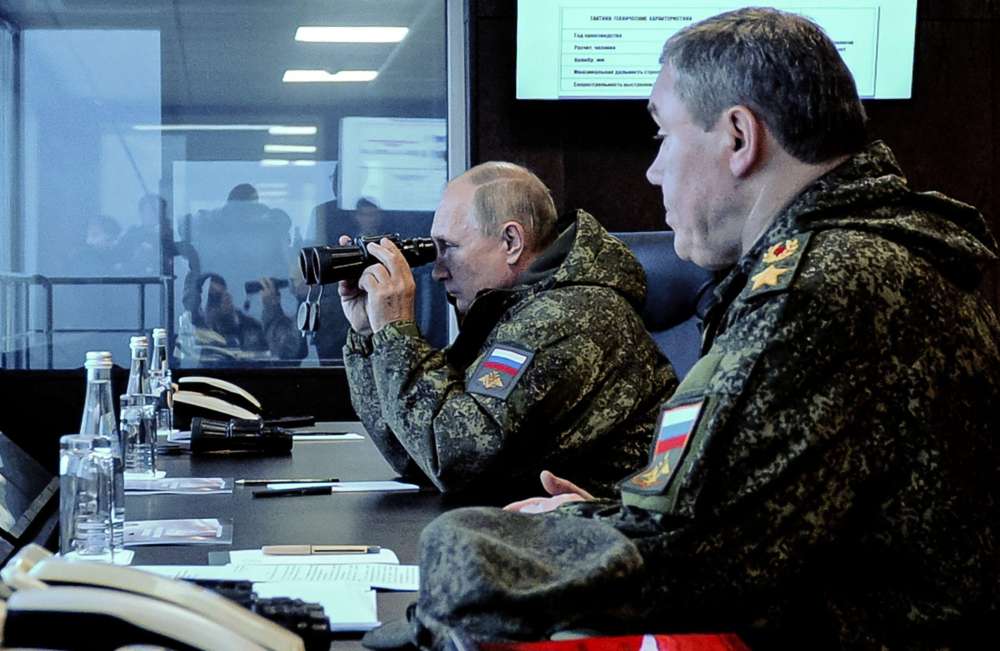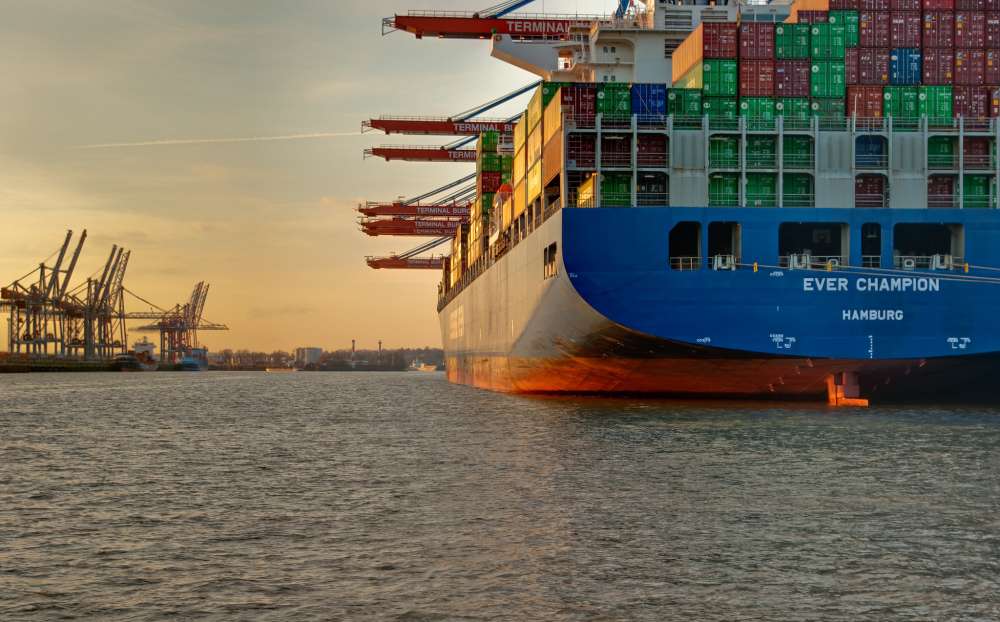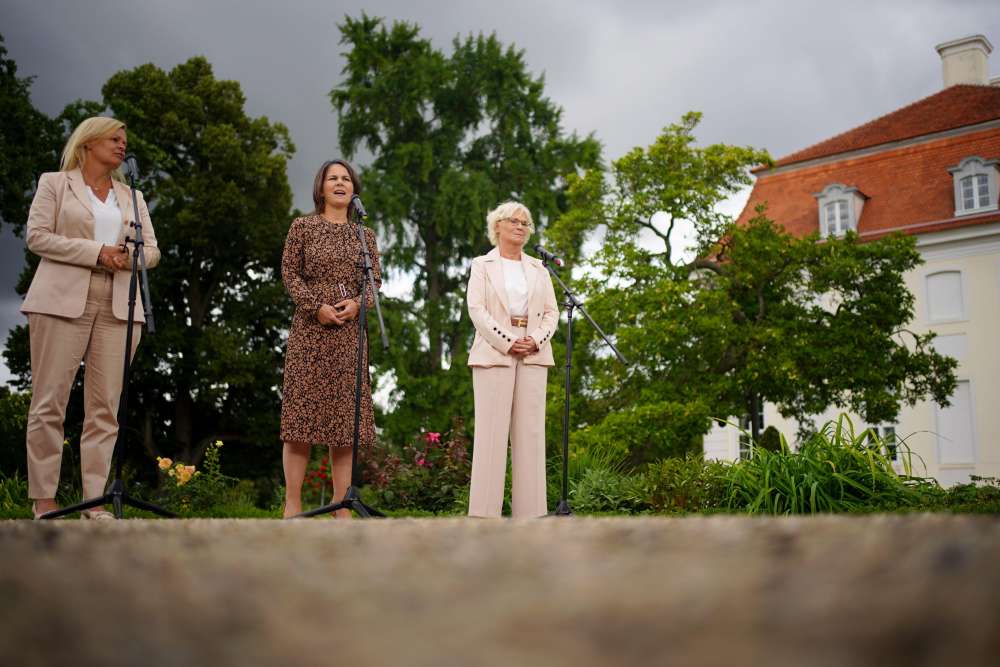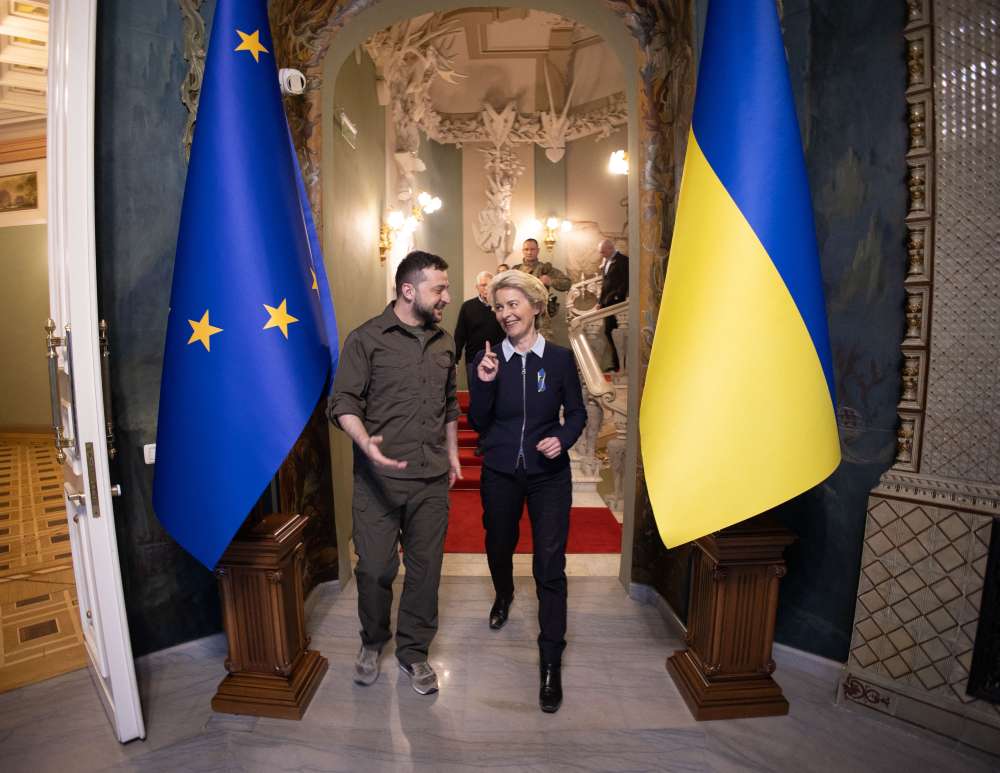Crash-Proofing Germany’s Foreign Policy: Ukraine and the Post-Biden Future
German foreign policy should stop its wishful thinking and embrace today’s reality. To do so will require Berlin to dismantle some of its underlying assumptions about the world.
You have described Russia’s war against Ukraine as a “major crash of German foreign policy” and said that Germany’s assumptions about change-through-trade and rules-based cooperation are broken. How should Germany design its upcoming national security strategy to prevent another major crash?
Usually, we describe the history of Germany’s foreign policy as a success story that leads from the founding of the Republic in 1949 to western integration, rearmament, Ostpolitik, the fall of the Berlin Wall, and the ensuing period of democratic peace and globalization. But what we see now is the first major crash of German foreign policy, including the dismantling of several of its underlying assumptions about the world. Therefore, I hope that Germany’s new national security strategy sheds some of its wishful thinking and adapts to the world we live in. Foreign policy should first look at the world as it is, not how it should be.
Given the global power distribution, it is very unlikely that our goal of shaping the world according to our ideals – we wanted to make the world safe for democracy in the post-1990s era – can be successfully pursued in the near future. That does not mean that we should not strive to live by our ideals. However, we need to recognize that the authoritarian world view has gained a lot of traction around the world. And the fact that authoritarians will not going away any time soon should be a starting point of the national security strategy.
You have a concrete vision of how to end the war in Ukraine: Supply weapons to Ukraine’s armed forces so as to force Russia to negotiate. However, Russian President Vladimir Putin recently announced the partial mobilization of Russian reservists. What will it realistically take to bring Moscow to the negotiating table?
Putin needs an incentive to come to the table. The only incentive I can think of is the realization that he can no longer win this war. Anyone who wants to save lives and end the conflict quickly needs to increase the incentives for Putin to come to the negotiating table. Once Putin understands that his military options are limited, his willingness to negotiate and strike compromises is likely to increase. We need to do everything to ensure that this point comes quickly.
» Foreign policy should first look at the world as it is, not how it should be. «
Putin has openly threatened nuclear strikes as a deterrent against re-taking Ukrainian territories that have been annexed by Russia. How should Ukraine and NATO deal with Putin’s nuclear blackmail?
Western countries and also Ukraine have responded very well so far. The recent stage of Putin’s war against Ukraine saw an increase in Moscow’s use of nuclear threats. However, these threats were rhetorical and did not trigger any real changes in the disposition of Russian nuclear forces. The same is true for US nuclear forces. Oftentimes, the US seems to have even ignored these threats. With annexation and mobilization – and it is a mobilization, not a partial mobilization, just as this is a war and not a special operation – Putin has renewed his nuclear threats. US National Security Advisor Jake Sullivan issued a strong warning that the use of nuclear weapons would have “catastrophic consequences for Russia.” So, we are seeing deterrence at work. And that is good, that is appropriate.
What role should Germany play in Ukraine’s reconstruction after the war?
In order for any reconstruction to succeed, the assisted state cannot be a failed state. Therefore, Germany’s first priority should be to do its utmost to ensure that Ukraine continues to exist and does not go broke. This means providing arms as well as macro-financial support to the country. The European Union, including Germany, has been lagging behind on its promised payments. Planning for and engaging in Ukraine’s reconstruction is not an excuse to take an eye off the ball from what is immediately needed. Concerning reconstruction, Germany can and should play a major role. That means German businesses will see a lot of investment opportunities should the war end in a ceasefire or a settlement under terms favorable to Ukraine. The German government, which has invited experts to a reconstruction conference in Berlin on 25 October, needs to play its part within the European Union to build up a governance structure and financing model. And partners in the G7 should participate as well: Ukraine’s reconstruction will require an international effort which Germany and the EU cannot muster alone.
» Ukraine’s reconstruction will require an international effort which Germany and the EU cannot muster alone. «
Are you in favor of Ukraine joining the EU and NATO?
Many of the investments necessary to reconstruct Ukraine after the war will only make sense, or may make more sense, if Ukraine has an EU perspective. The prospect of EU membership is a tool and a lever to speed up Ukraine’s development and its so-called Europeanization. Ukraine is a country that has given us all inspiration about what it means to be European and to desire to be free, democratic country. Therefore, yes, Ukraine eventually belongs in the European Union.
Whether Kyiv should join NATO is a much more complicated question. It has often been said that the push to include Ukraine in NATO helped to trigger the start of the war – but that clearly is a Putin narrative. Another logic seems more convincing: the problem was not that NATO expanded too far, but rather that it expanded not far enough, which created a vacuum in which Putin’s military could wage its aggressive war. So, the question is: Will security assurances or full NATO membership be the solution to the threat facing the unsecured countries between Russia and NATO? That is still an open question that the outcome of the war will help to answer.
How can Germany help to reduce the mutual mistrust towards Poland and the Baltic states?
Germany prides itself as being a multilateral player and a Europeanist actor. However, it has acted unilaterally with regard to its energy policy which has been opposed by the Baltic States and Poland. Germany has not done enough to ameliorate these countries’ security concerns. On the contrary, Germany ignored its commitment to dedicate 2 percent of its GDP to NATO defense spending.
With this in mind, I can understand why Poland and the Baltic states may not trust in Berlin’s intentions. And Germany will have to work hard to regain others’ trust, especially from the countries on the Eastern Flank, including Estonia, Latvia, Lithuania, Poland, Slovakia, Romania, Hungary, and Bulgaria. The way to regain trust is to start listening to these countries’ concerns and, even more so, to cooperate with them.
Key Points:
- The reality of authoritarian influence should be a starting point for Germany’s new national security strategy.
- To end the war in Ukraine, Russia must be compelled to the negotiating table – which means convincing Putin that he cannot win the war.
- Germany should take the lead in advancing Ukraine’s reconstruction strategy within the EU. However, ensuring Ukraine’s financial and political future is the immediate priority.
- Germany needs to take Polish and Baltic security concerns seriously, and build a strong relationship with internationalist-Republican elements to prepare for a potential post-Biden future.
How can Germany best prepare for a post-Biden United States? Should Germany push for a European nuclear umbrella to adapt for a possible loss of US security guarantees?
I am not sure I agree with the underlying assumption of this question. It assumes that the US will go away as an ally – but I do not take that as a given. Rather, in recent years, it was Germany that distanced itself by neglecting its basic commitments to the NATO alliance. Now, some of Washington’s concerns about German policy have been addressed through the promise of a Zeitenwende: these include the 2 percent NATO defense spending goal and its energy policy. Therefore, even if the US Government changes hands in 2024, it is very unlikely that it would simply return to a pre-Biden type of administration.
Germany should invest in its relationship with the US and build ties with the internationalist-Republican elements in order to prepare for a post-Biden future. Even if Trump were to come back to the Oval Office, my expectation is not that this would unite Europe, but that Europe will be severely split. We have seen that patient American diplomacy helps to unify European states, especially prior to Vladimir Putin’s war of aggression. In the absence of such diplomacy, I do not see European unity – I see European division.
Thomas Kleine-Brockhoff
Vice President and Executive Director, Berlin Office, German Marshall Fund of the United States (GMF)
Weiterlesen

Make Germany Secure Against Russia
After thirty years of historical reconciliation and special relations, this is an uncomfortable truth – but the primary aim of Germany’s security strategy should be to contain Russia in Europe.

Finding a New Compass for Germany’s Foreign Economic Policy
Germany has one of the world’s most internationalized economies. This comes with benefits, but also with risks. Berlin’s national security strategy is an opportunity to recalibrate its foreign economic policy to better maneuver today’s challenges.

German Feminist Foreign Policy: An Inside-Outside Perspective
Germany is keen on developing a feminist foreign policy – but so far, this initiative excludes many important perspectives. How Berlin can create a genuinely inclusive foreign policy that is less anthropocentric and more climate-friendly.
